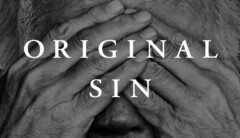In our pain we know God is not absent, but in our pain we also wonder whether God is present. Or perhaps more correctly we wonder how God is present.
In times of great grief or dark uncertainty we cling to the reality that God is a loving Father who has welcomed us into his family—we are his beloved children. We dwell on the promise that he will never leave nor forsake the ones he loves—he will preserve us to the end. We hold to the knowledge that even our worst experiences are somehow being used to accomplish something beneficial—all things work together for good for those who are loved by God. We reflect on the sure and fixed hope that Christ will return and in that day bring an end to all pain and sorrow—he will right every wrong.
But we also remember that he sometimes chastises the ones he loves. We remember that a good Father must sometimes exercise a loving discipline toward his beloved children. We remember there are often just consequences for unjust actions. God assured Paul of his power and presence, but also gave him a thorn in his flesh to keep him humble, to keep him from falling into a spiritual death-spiral. God calls us to confess our sins that we may be healed, an acknowledgement that sometimes our sickness and suffering may be a divinely-ordained consequence for sin (James 5:14ff). “What son is there whom his father does not discipline” (Hebrews 12:7)?
Today’s suffering, today’s pain, today’s sorrow—is this simply a part of the difficulty of living in a sin-stained world, a world where sin’s consequences afflict our bodies, our minds, and our souls? Or is this a divine warning of sorts, a divine chastisement meant to interrupt sin and steer us back to the way that is straight and narrow? Thinking soberly in our most difficult moments, we often can’t help but wonder. Do I need to repent or do I need to endure? Do I need to ask God to give me insight to see and own my sin, or do I need to ask God to help me bear this burden?
In the end, we may never fully know. But it seems clear that when we suffer, we should prepare to endure even as we also give ourselves to self-examination. When sick and suffering, we should devote ourselves to asking God to reveal any sins we are harboring, coddling, refusing to acknowledge, or refusing to put to death. It may be that there are none. But it may be that we uncover something we’ve been unwilling or unable to see and admit and repent of.
And then we endure. We endure with joy. We endure with patience. We endure with trust. We endure with confidence that God is good. We endure and trust that somehow God is working even in this to conform us more and more to the image of his precious Son.










